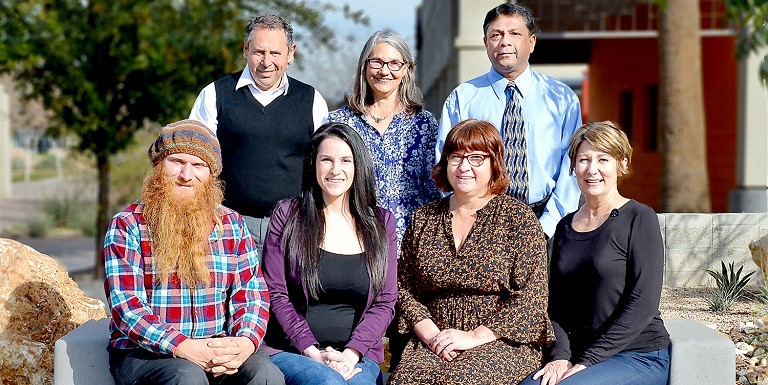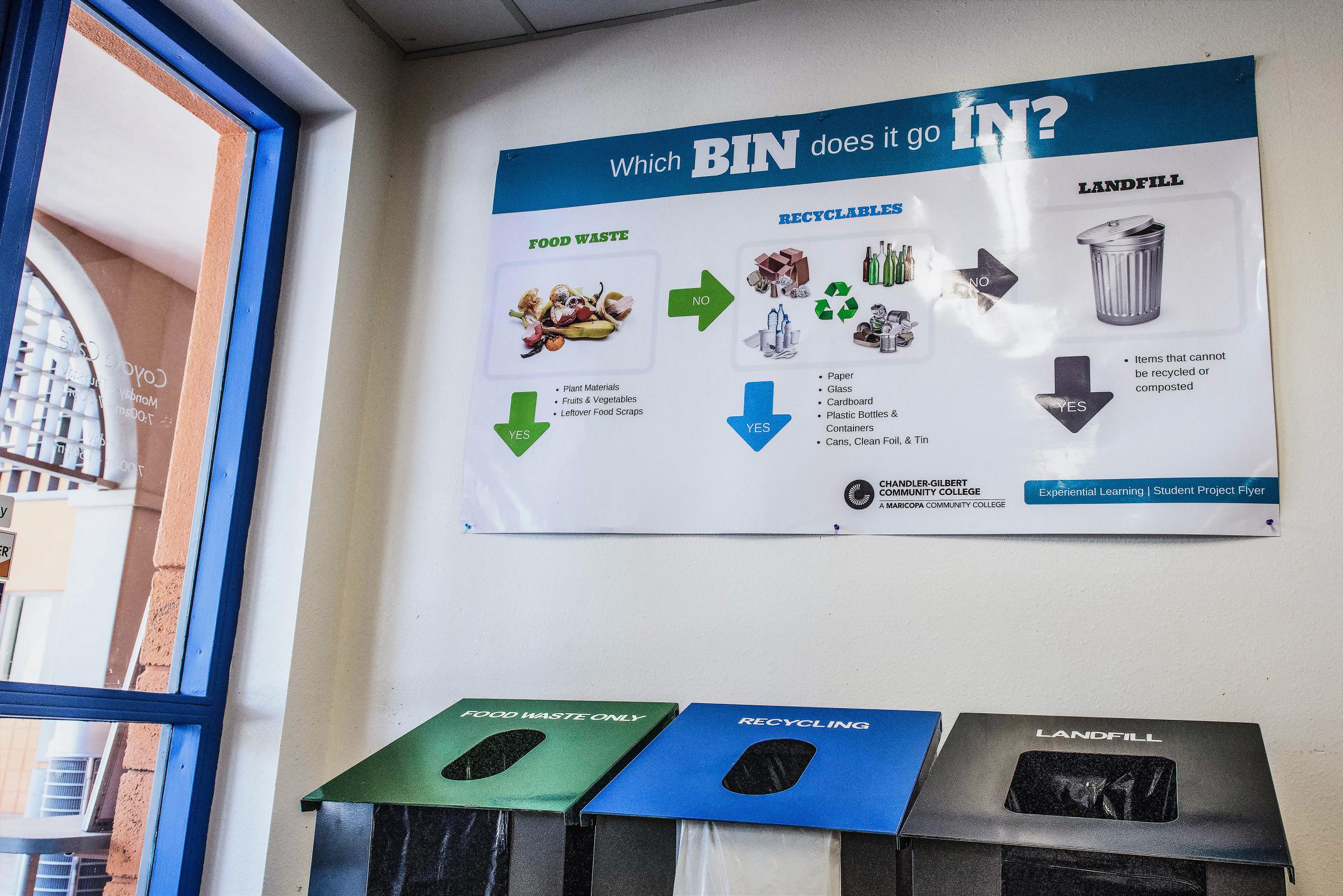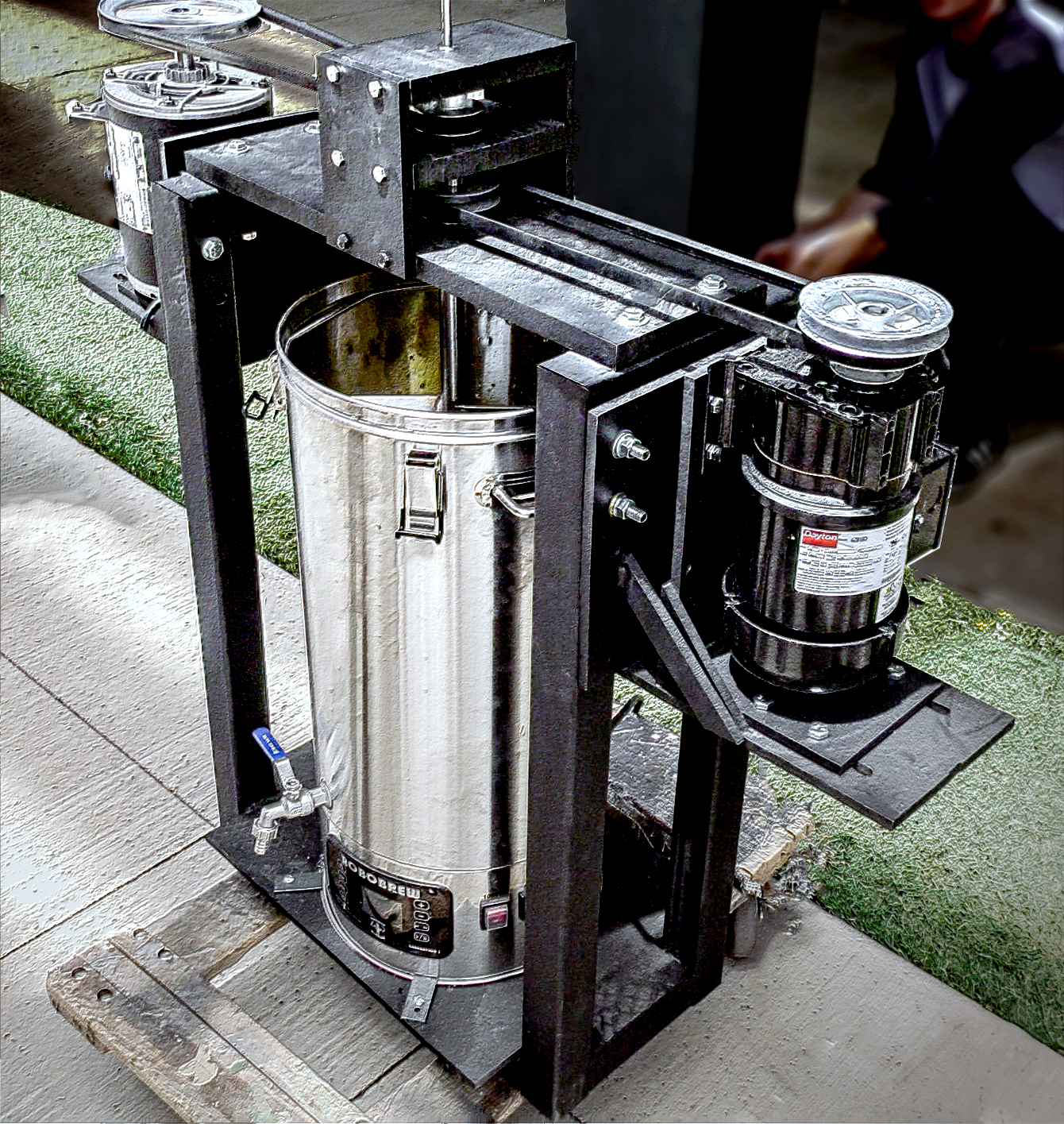Chandler-Gilbert Community College: Innovative Food Waste Recycling Project

Chandler-Gilbert Community College’s (CGCC) Food and Green Waste Recycling Project is a collaborative grant-funded effort that offers cross-disciplinary and experiential student learning through the launch of an innovative solution for food and green waste recycling needs. The project evolved from a passionate idea inspired by student projects showcased during CGCC’s Sustainability Day in 2017 to a campuswide initiative in the span of just one year. In 2019, CGCC won the Maricopa Community Colleges Innovation of the Year Award for this project.
Experiential, Cross-Disciplinary Efforts
Campuswide project efforts included faculty, facility operations, food service, marketing, and media to optimize the student learning experience for this multi-year venture. The cross-disciplinary nature of the project took flight when students taking courses across such disciplines as biology, English, and engineering began participating through semester-long supporting tasks. Each task is designed to tackle one step in this endeavor, including
- studying the broad impacts of food waste on the environment;
- analyzing and modifying campus community behavior around food waste sorting;
- designing and constructing a pilot food waste digester;
- selecting the microbes needed to perform the biotransformation process in the digester; and
- testing the effects of the organic liquid fertilizer on plants.

Food Waste Behavior Studies: Biology, Marketing, and English
During fall 2018, biology students collaborated with the college’s marketing department to create posters about the new three-bin waste collection systems in the cafeteria, with the purpose of educating the campus community about the project and encouraging participation in waste sorting. Once the food waste recycling option was implemented through these receptacles, the students weighed the food waste to get an idea of how much is generated on campus, then recycled it using traditional composting methods. The compost was used in the college’s garden. Tracking the food waste before and after sorting out the non-food items helped students to determine the techniques needed to increase awareness and modify behavior. English students conducted sustainability mindset surveys to assess food waste recycling behaviors and attitudes. These ongoing surveys will be evaluated to assess progress on behavior change and attitude shifts and inform target areas for future projects or events.
Food Waste Digester Design and Creation: Engineering and Biology
Engineering and biology students collaborated in the creation of multiple design options for the organic waste recycling machine. The designs were based on relevant concepts from washing machines, garbage disposals, and beer brewing machines. Biology students conducted experiments to find the best aerobic bacteria strains to break down food and landscape waste in the digester machine. Engineering students developed four 3-D models of food digester designs and presented these to a panel of CGCC leadership. The winning design provided a unique approach to food waste digestion because of its two-step process in a single barrel design. First, the waste is mechanically blended into liquid form. Then, an anaerobic microbial digestion process further composts the waste. Due to its distinctive design, the machine is easy to use and the process is complete in three to six hours. Future engineering students will further enhance this machine for ease of use, better filtration, and faster processing.

Plant Studies Testing Fertilizer Effects
In spring 2019, before the food digester machine was complete, biology professor Miriam Kleinman created a test batch of liquid fertilizer in the lab to conduct experiments on plant growth. Her biology students applied this liquid fertilizer sample on four varieties of plants and tested the effects against a control group and a traditional fertilizer group with encouraging results. Future biology classes will use the liquid fertilizer produced by the food digester to study its effects on campus plant life. Students will test different formulations and work with the digester to further refine the liquid fertilizer product, with the possibility of creating specialized formulations for different plants.
Next Steps for CGCC Food Waste Recycling
The efficiency of the food waste digester supports the college’s long-term goal of expanding the Food and Green Waste Recycling Project beyond the CGCC campuses to create fertilizer that can be used to nurture local green spaces and the surrounding agricultural community. Through collaboration between multidisciplinary teams of faculty, staff, and students, the college hopes to expand the project to other colleges within the Maricopa County Community College District, who can launch pilot designs to address their own micro-local needs.
Click here to learn more about this and other sustainability initiatives at CGCC.
Lead image: Top row, from left: Bassam Matar, Yvonne Reinke, Kanapathipillai Prabakaran; bottom row, from left: Jay Linford, Miriam Kleinman, Michele Marsee, Mary Beth Burgoyne
Tyler Perrino is a Digital Content Strategist at Chandler-Gilbert Community College in Chandler, Arizona.
Opinions expressed in Member Spotlight are those of the author(s) and do not necessarily reflect those of the League for Innovation in the Community College.










